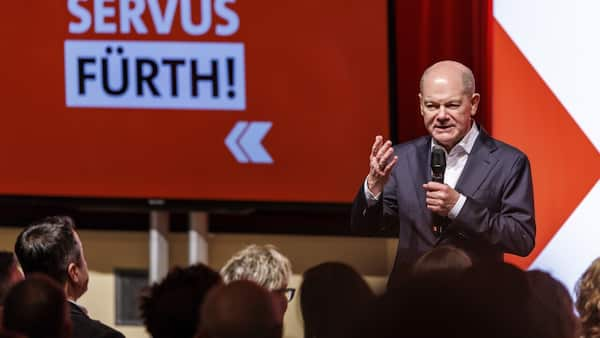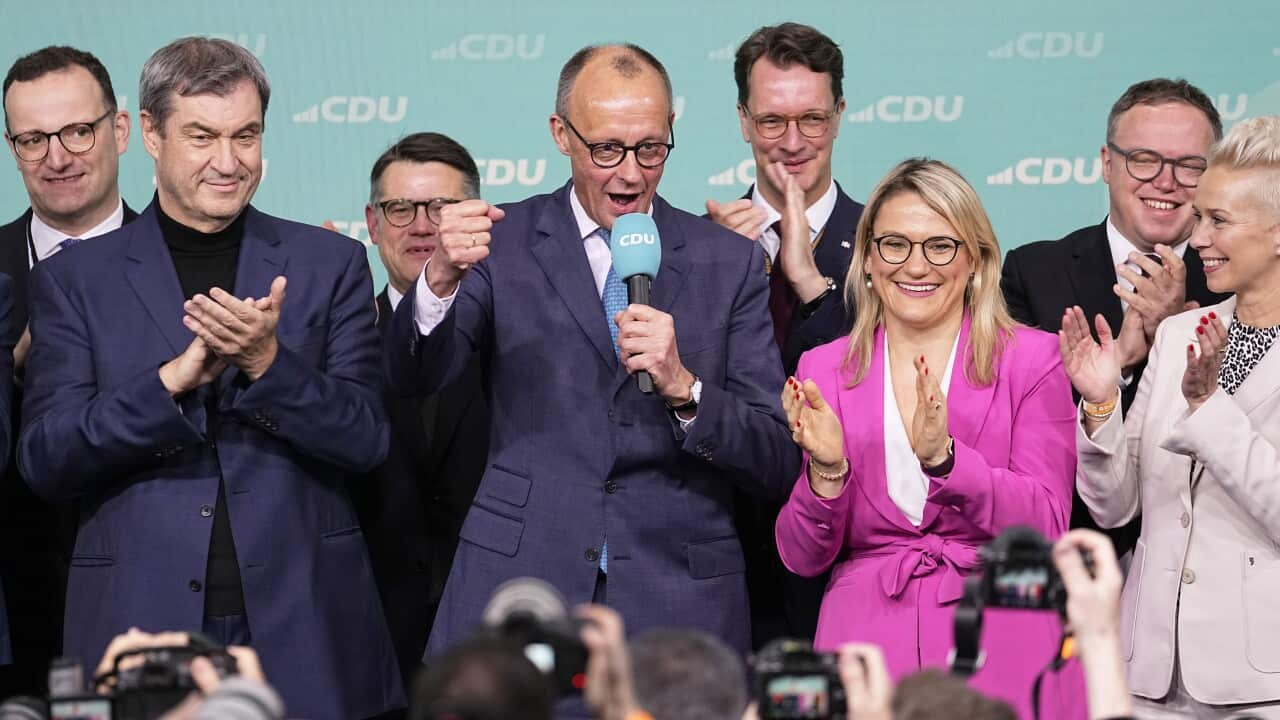Germany’s opposition conservatives won the national election on Sunday, putting leader Friedrich Merz on track to be the next chancellor, while the far-right Alternative for Germany (AfD) came in second on its best result to date, projected results showed.
Following a campaign marred by a series of violent attacks and interventions by the United States administration, the conservative CDU/CSU bloc won 28.7 per cent of the vote, followed by the AfD with 19.8 per cent, public broadcaster ZDF projected.
Merz, 69, told supporters: “Tonight we will celebrate, and from tomorrow we start working … The world out there is not waiting for us.”
He is heading into what are likely to be lengthy coalition talks without a strong negotiating hand.
CDU/CSU is a centre-right Christian democratic and conservative political alliance of two political parties in Germany — the Christian Democratic Union of Germany and the Christian Social Union in Bavaria.
While CDU/CSU emerged as the largest bloc in the parliamentary election, it scored its second-worst post-war result.
Chancellor Olaf Scholz’s Social Democrats (SPD) tumbled to their worst result since World War Two, with 16.4 per cent of the vote share, according to the ZDF projection, while the Greens were on 12.3 per cent and the far left Die Linke party on 8.9 per cent of the vote.
It remains unclear whether Merz will need one or two partners to form a majority.
A three-way coalition would likely be much more complex, hampering Germany’s ability to show clear leadership.
All of the mainstream parties have ruled out working with the AfD.
Implications for NATO, Russia-Ukraine conflict
Merz has no previous government experience but has promised to provide greater leadership than Chancellor Olaf Scholz and to liaise more with key allies, restoring Germany to the heart of Europe.
He also conditionally supports equipping Ukraine with longer-range Taurus missiles, a step Scholz’s government shied away from, and considers Europe as firmly anchored in NATO.
Merz questioned on Sunday whether NATO would remain in its “current form” by June in light of the comments by US President Donald Trump’s administration, and that Europe must quickly establish an independent defence capability.
“I would never have thought that I would have to say something like this in a TV show but, after Donald Trump’s remarks last week … it is clear that this government does not care much about the fate of Europe,” Merz told German public broadcaster ARD after his conservatives won a national election.
Last week, the Trump administration shocked European allies by telling them they must take care of their own security and rely less on the United States, while announcing talks with Russia to end the war in Ukraine without involving Europe.
Trump has praised the election result in a post on Truth Social. “Looks like the conservative party in Germany has won the very big and highly anticipated election,” he wrote.
“Much like the USA, the people of Germany got tired of the no common sense agenda, especially on energy and immigration, that has prevailed for so many years. This is a great day for Germany.”
Difficult coalition negotiations looming
Scholz has said he won’t take part in coalition negotiations with the conservative bloc if Merz invites the Social Democrats.
“I will not be a SPD representative in a federal government led by the CDU, nor will I negotiate it,” Scholz said on Sunday in a post-election panel discussion aired by public broadcasters.
The pro-market Free Democrats (FDP) and newcomer Sahra Wagenknecht Alliance (BSW) party hovered around the 5 per cent threshold to enter parliament.
Coalition negotiations are certain to be tricky, especially after a campaign that exposed sharp divisions over migration and how to deal with the AfD in a country where far-right politics carry a particularly strong stigma due to its Nazi past.
That could leave Scholz in a caretaker role for months, delaying urgently needed policies to revive Europe’s largest economy after two consecutive years of contraction and as companies struggle against global rivals.
Germans are more pessimistic about their living standards now than at any time since the financial crisis in 2008.
Attitudes towards migration have also hardened, a profound shift in German public sentiment since its ‘refugees welcome’ culture during Europe’s migrant crisis in 2015, that the AfD has both driven and harnessed.
Far-right AfD makes history
The 12-year-old AfD party took second place for the first time in a national election, according to the exit polls.
The party, which has morphed since it was founded in 2013 from a party of libertarian economists to an anti-immigration, pro-Russia group, is forecast to have won the backing of one in five Germans.
“This is a historic result for us,” AfD co-leader Alice Weidel said as party supporters waved German flags in celebration.
“We are open to coalition negotiations … otherwise, there will be no change in policy possible in Germany.”
Support for the AfD, along with a small but significant vote share for the far left and the decline of Germany’s big-tent parties, is increasingly complicating the formation of coalitions and governance.
In her victory speech, Weidel told supporters that it would be tantamount to “electoral fraud” if the first-placed conservatives chose to govern with left-wing parties rather than them.
If that happened, she said, “next time we’ll come first”.
Weidel, the leader of a nativist party that preaches traditional family values while raising her children with a Swiss-based woman of Sri Lankan background, said the AfD was now “a mainstream party”.
Once internationally isolated, it now has an ally in the White House, where Trump’s adviser Elon Musk, the world’s richest person,

